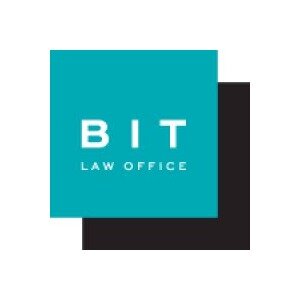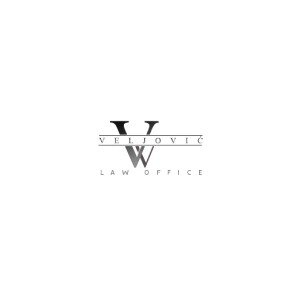Best Acquisition / Leveraged Finance Lawyers in Serbia
Share your needs with us, get contacted by law firms.
Free. Takes 2 min.
Or refine your search by selecting a city:
List of the best lawyers in Serbia
Legal guides written by Business Law office - Advokatska Kancelarija:
- Why Invest In Serbia
About Acquisition / Leveraged Finance Law in Serbia
Acquisition and leveraged finance refers to the legal and financial structures used to fund the purchase of companies or assets, often using significant amounts of borrowed funds. In Serbia, these transactions are critical for business growth, restructuring, private equity investments, and cross-border transactions. The legal framework in Serbia governing such financing is influenced by both domestic laws and European standards, as Serbia continues alignment with the European Union. Leveraged financing typically involves complex arrangements, including senior and mezzanine loans, security packages, and contractual covenants, all requiring meticulous legal preparation and compliance.
Why You May Need a Lawyer
Engaging a lawyer knowledgeable in acquisition and leveraged finance is essential for several reasons. Common scenarios include:
- Structuring, negotiating, or closing the purchase or sale of a company involving borrowed funds.
- Advising on security interests, guarantees, and collateral arrangements.
- Compliance with local regulatory and anti-money laundering requirements.
- Navigating cross-border transactions, especially when foreign investors are involved.
- Resolving disputes arising from breaches of covenants or loan agreements.
- Conducting due diligence on target companies or assets.
- Ensuring that financing documentation is comprehensive and enforceable under Serbian law.
Without professional legal guidance, parties risk non-compliance, exposure to financial or tax liabilities, and potential loss of investment.
Local Laws Overview
Acquisition and leveraged finance transactions in Serbia are mainly governed by the Law on Obligations, the Law on Companies, the Law on Banks, and various regulations from the National Bank of Serbia. Key points include:
- Restrictions apply to financial assistance, where a company may be limited in providing loans, guarantees, or security for the acquisition of its own shares.
- Security documentation, including pledges and mortgages, must often be registered with the relevant Serbian registries to be enforceable.
- Cross-border financing may involve currency controls, requiring approvals from the National Bank of Serbia.
- Capital controls, anti-money laundering compliance, and transparency regulations must be observed.
- Contracting in foreign currencies is regulated and sometimes restricted.
- EU regulations and international standards are increasingly significant in transaction structuring due to Serbia’s EU accession pathway.
Legal requirements differ depending on the type of entity, the nature of assets, and the industries involved. Expertise is crucial for successful and legally compliant transactions.
Frequently Asked Questions
What is leveraged finance and how does it differ from traditional acquisition finance?
Leveraged finance refers to using borrowed funds to acquire a company, often employing a high ratio of debt to equity. This contrasts with traditional acquisition finance, which may rely more on equity or less risky loan structures. Leveraged structures increase potential returns, but also increase risk and regulatory scrutiny.
Can a Serbian company provide security for a loan given to its parent or an affiliate?
Providing security for third-party obligations is permitted but subject to various legal restrictions, especially to prevent financial assistance for acquiring a company's own shares. Board and shareholder approvals may be required, and agreements must comply with Serbian law.
What are the main forms of security in acquisition and leveraged finance in Serbia?
Common forms of security include mortgages over real estate, pledges over shares, movable property, bank accounts, and receivables, as well as corporate or personal guarantees. Each must comply with registration and perfection requirements under Serbian law.
Do Serbian laws restrict foreign lenders from providing acquisition finance?
Foreign lenders can provide acquisition finance in Serbia, but such transactions may be subject to foreign exchange regulations, notification, or approval requirements by the National Bank of Serbia. Local banks may have additional prudential requirements.
Are there limitations on repayment terms or interest rates in acquisition finance?
Serbian law does not set strict limits on interest rates in commercial transactions, but usury laws and market practice set practical boundaries. Repayment terms are generally a matter of contract, but loan documentation must comply with local legislation.
How is due diligence conducted in Serbian acquisition finance deals?
Due diligence involves a legal, financial, and sometimes technical review of the target company or assets. The process includes reviewing corporate records, checking for liens or encumbrances, regulatory compliance, litigation risks, and contractual obligations.
Is court approval required for acquisition and leveraged finance transactions?
Court approval is generally not required for most acquisition or leveraged finance agreements. However, if insolvency or restructuring is involved, or if court-enforced security interests are needed, judicial involvement may be necessary.
What are the typical steps in closing an acquisition finance transaction in Serbia?
Key steps include structuring the deal, due diligence, negotiating finance and security documents, obtaining necessary approvals, signing agreements, registering security interests, and finally, disbursing funds upon completion of conditions precedent.
What happens if a borrower defaults on a loan secured under Serbian law?
Upon default, lenders may enforce collateral through agreed contractual mechanisms or through court proceedings. The process and timing depend on the type of security and terms of the agreement. Pre-judicial enforcement options may be available for registered pledges.
How are acquisition and leveraged finance disputes typically resolved in Serbia?
Disputes are often resolved through negotiation or arbitration, as parties may agree. Serbian courts are also competent for such disputes. Enforceability of foreign arbitration awards or court judgments is usually supported, subject to recognition procedures.
Additional Resources
If you need further information, the following organizations and bodies provide resources on acquisition and leveraged finance in Serbia:
- National Bank of Serbia - as the main regulatory body for financial transactions and foreign exchange control.
- Serbian Business Registers Agency - for company and pledge registry information.
- Serbian Chamber of Commerce - providing business and legal guidance.
- Ministry of Finance of the Republic of Serbia - for regulations affecting financial and corporate transactions.
- Serbian Bar Association - for references to specialized legal practitioners in this field.
Professional organizations, law firms, and legal publications in Serbia also offer valuable commentaries and updates on legislative changes.
Next Steps
If you are considering or involved in an acquisition or leveraged financing transaction in Serbia, it is crucial to secure qualified legal advice at an early stage. Here is how to proceed:
- Identify your objectives and prepare all relevant documentation regarding the transaction or financing.
- Contact a law firm or attorney with specific experience in acquisition and leveraged finance within the Serbian market.
- Arrange a consultation to discuss your needs and clarify the scope of legal services required.
- Request an outline of the transaction process, potential risks, and estimated costs involved.
- Consider ongoing legal support for negotiation, documentation, and post-closing obligations.
An experienced lawyer will guide you in complying with local laws, structuring transactions efficiently, and protecting your interests throughout the financing process.
Lawzana helps you find the best lawyers and law firms in Serbia through a curated and pre-screened list of qualified legal professionals. Our platform offers rankings and detailed profiles of attorneys and law firms, allowing you to compare based on practice areas, including Acquisition / Leveraged Finance, experience, and client feedback.
Each profile includes a description of the firm's areas of practice, client reviews, team members and partners, year of establishment, spoken languages, office locations, contact information, social media presence, and any published articles or resources. Most firms on our platform speak English and are experienced in both local and international legal matters.
Get a quote from top-rated law firms in Serbia — quickly, securely, and without unnecessary hassle.
Disclaimer:
The information provided on this page is for general informational purposes only and does not constitute legal advice. While we strive to ensure the accuracy and relevance of the content, legal information may change over time, and interpretations of the law can vary. You should always consult with a qualified legal professional for advice specific to your situation.
We disclaim all liability for actions taken or not taken based on the content of this page. If you believe any information is incorrect or outdated, please contact us, and we will review and update it where appropriate.
Browse acquisition / leveraged finance law firms by city in Serbia
Refine your search by selecting a city.

















